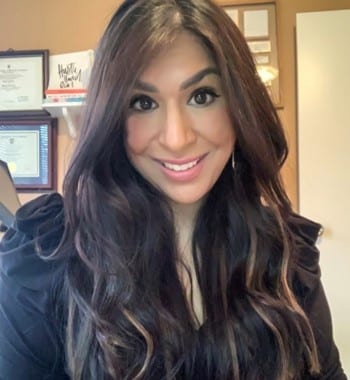Shahzia Noorally (she/her) is a senior HR professional based in Calgary, AB who is on a personal mission to change the corporate world. She believes in challenging the norms around how great cultures should be built and infused to make high performing, engaging and authentically diverse workplaces. As a proud introvert and a personal branding nerd, she believes in the power of social media to elevate both conversations and results for people and businesses. She is a published writer, speaker, and blogger and holds both a Bachelor of Management degree from the University of Lethbridge as well as a Masters of Education degree from the University of British Columbia. Outside of her work life,, you can find her hanging out with her rescue dog, Ollie and building her side hustle,
the Colour Gap, a podcast that provides unconventional career strategy and advice for women of colour, by women of colour.
Shahzia and Golnaz (AHF’s Founder) met through Instagram in 2019 discovering their shared mission to challenge the status quo and advance the full participation of women of colour in the corporate world. In 2020, Shahzia invited Golnaz on
the Colour Gap and later that same year Golnaz invited Shahzia onto AHF’s Fellows Selection Committee and to apply as a mentor for the Fellowship Circle.
Needless to say we are deeply grateful for this connection and for having Shahzia in our community. We had the honour to sit with Shahzia recently for an interview and delighted to share her brilliant perspectives with our readers.
What does AHF mean to you and what motivated you to apply to become a mentor?
In a nutshell, AHF means representation and hope for me. To see so many amazing, accomplished and inspiring women as a part of the Fellowship Circle gives me so much hope for the future and means more BIWOC can have the kinds of careers and impact we all deserve. It also means that future generations of BIWOC can see themselves in positions of power, influence and impact and that gives me so much hope for what’s to come. AHF is such a platform and catalyst for so many of the things I wish I had access to when I was in my early-career and what a joy it’s been to be part of the journey.
I fell in love with the mandate of AHF as soon as I heard about it, primarily because I would have loved to have such an experience available to me when I was starting out in my career. To date, I’ve had very few career role models that have looked anything like me and the opportunity to be amongst a group of like minded and like valued women either mentoring future generations of up and coming BIWOC talent or those seeking mentorship to navigate the tricky parts of their careers, resonated so deeply with me.
As I engaged in mentorship circles and conversations, what I took away was how much our experiences as BIWOC are not happening in isolation. The intentional investments in ourselves, our personal brands, our ability to ask for what we desire and deserve are incredibly important to move through environments that aren’t always designed for us. There was incredible richness in each learning lab that had me walking away with a whole host of ah ha moments that left me feeling not only empowered but also really seen and validated.
What inspired you to create the Colour Gap podcast? Which episodes have had the most profound impact on you and your listeners?
The Colour Gap was originally started with my former podcast partner, Susy Ko, as we had this realization that we both felt alone in our experiences of navigating corporate environments as racialized women. For me at the time that realization came from getting into my first leadership role. It was a very lonely and isolating experience and through Susy and I’s friendship and working relationship, it was an aha moment that we weren’t alone. We set out to talk about the lived experiences of women of colour navigating corporate environments.
Since the end of 2020, I have taken the podcast solo and it now focuses on unconventional career strategy and advice for women of colour. It weaves in my personal experiences as a former recruiter, career coach, as an introvert and as an “only” in leadership to help other women of colour and racialized women avoid the same mistakes I made in my journey.
The episode that has had the most profound impact on me was on “Why your path to finding fulfilling works requires a spiritual lens”. It was such an out of the comfort zone episode for me where I spoke to things I don’t see a lot of people talking about in the space of career advice and strategy. It also reflects deeply on my own personal journey of making some big pivots and unexpected changes in my career the last year that have required me to go deeper into my spirituality and faith to stay grounded in the change.
The episode that seems to have resonated the most so far with my audience is “What’s in a name and why you should correct them every time” – growing up with a unique name (that literally means unique!) means I have been called every imaginable iteration of my name. The confidence to correct people and honour the beauty and richness of my Pakistani, Muslim roots does not come easy.
How many of us have had that experience of knowing our otherness through our names? It’s interesting to think of all the ways we quiet ourselves to make it comfortable for other people in our lives and that episode focused on helping all the racialized women and people with unique names learn to stand in our power and correct people to own one of the most fundamental pieces of our identity.
How can early-career BIWOC develop their personal brand and grow their connections? Any tips for those of us with a preference for introversion?
First, never rely just on your hard work to get noticed and get ahead, it’s simply not enough. You have to start investing with intention into your personal brand and relationships and learn the art of the “humble brag.” Don’t be defined by your job description or title, seek ways to solve problems in your organization and don’t always wait for permission to do so. In addition, start talking about your passions, skills and the impact you’re having – never rely solely on anyone else to speak to these things. If you do great work but no one knows about it, it’s wasted.
Start to invest intentional time and effort outside of your organization to build a brand and reputation for yourself. As we navigate the pandemic, virtual relationship building is still very possible and almost easier for outside your organization or as you complete school. Invest time and energy into building your LinkedIn profile, start creating original content that speaks to things you’re passionate or curious about and be mindful of building your network from a lens on quality over quantity.
For those who like me have a preference for introversion, a big part of my desire and ability to start putting myself out there was from reframing my introversion as a valuable strength. I grew up believing I was shy and socially awkward, more of the background type of person. I read Susan Cain’s book,
Quiet and it changed everything for me. For those wanting to amplify your voices while staying true to your introverted nature, I say start with reframing how much power and strength there is in your quiet nature. Then find mediums where your voice can shine. I personally found writing to be an amazing outlet where my quiet reflection and all the things I want to say came to life, and even more importantly where I have been able to hone in on my own voice and the parts of my story that I want to share with the world. I am often quite floored with the reaction that comes from putting my writing out into the world, opening up opportunities for engaging and genuine connection with people that have led to some of my most impactful career moments.
What strategies would you share with early-career BIWOC about standing out in their job search?
I think no matter what happens with the job searching process, the age old advice around investing in relationships never changes. People want to hire those that they trust and referrals and a strong network who can vouch for you and your ability go a very long way.
If you’re trying to close your network gap and don’t have access to circles of influence that can open doors, don’t be afraid to start investing energy in building a network through platforms like LinkedIn. People love to talk about themselves and their careers and taking time to customize invitation requests to those that stand out to you and those you want to connect and engage with goes a long way. Informational interviews, virtual coffee connections and connecting on shared passions are a great place to start and can take you very far.
Hacking the traditional job searching process is often about finding a way to get noticed outside the standard process. I tell students and early career professionals all the time that the richness of who they are as whole people is incredibly important to incorporate into your resume and application and that can mean exploring unconventional approaches to job searching. As an HR professional, I’ve personally seen it all – from video cover letters, Instagram feeds created solely for someone’s job application process, visual infographic style resumes, resume websites – all can do their part in helping you stand out from the crowd.
I myself created an Instagram feed for my application to a leadership role for a women’s employee resource group at my last employer (you can check it out for inspiration – @shahzia_ellevate) and it was successful in landing me the opportunity and proved to be very impactful in the interview process.
Also, the little things count – following up after each touch point from a job interview process to say thank-you, having really great questions prepared for the interview process to demonstrate your critical thinking ability – all these small things stand out to showcase that you’re someone who would advance and contribute to the culture of the organization you’re applying to.
Tell us about your DisruptHR talk titled “HR, we have a problem”.
My former podcast partner and I, Susy Ko, had the idea for doing the DisruptHR talk from our experiences as a women of colour leaders in HR and recognizing that even though we often found ourselves in organizations where diverse representation was present in other parts of the organization, it rarely if ever was present in the HR leadership teams we saw and were a part of. It was a call to action to the HR profession to do a better job of practicing what we preach around Diversity, Equity and Inclusion work and actually showcases what it means to intentionally invest in talent that isn’t the “47 year old white woman.”
I really believe HR leadership teams need to take a hard look at their own hiring practices to think about ways in which they can expand their circles of influence to stop hiring in their own likeness. Then I think they need to get intentional about nurturing BIWOC talent in a way that allows us to be fully seen at work – what I mean by that is getting to know our full stories, who we are, listening to and understanding our challenges and then finding ways to break down barriers through their leadership and access. Sponsoring and mentoring us, profiling our work and helping us get access to the circles of influence that are often not naturally accessible to us.



